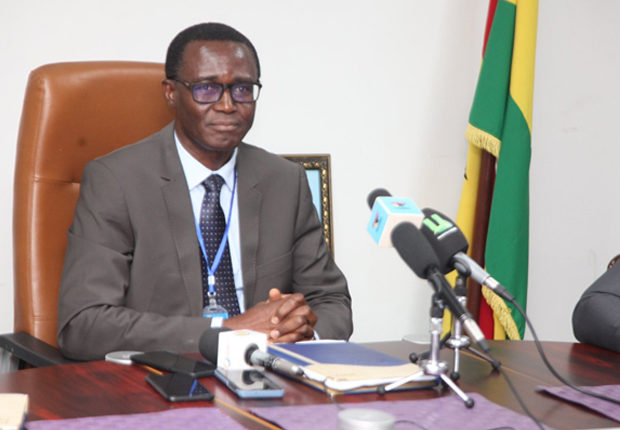The Commissioner-General of Ghana Revenue Authority, Rev Dr. Ammishaddai Owusu-Amoah has underscored the need for deepened regional cooperation between tax authorities of member states of the African Continental Free Trade Area (AfCFTA) agreement, as part of efforts to ensure its success.
This, he believes will be critical in preventing tax evasion and aid in detecting various financial and customs related crimes.
Speaking at the opening ceremony 7th Annual congress of the African Tax Administration Forum in Accra, Rev Dr. Ammishaddai Owusu-Amoah also said the implementation of the AfCFTA will require the use of technical skills, enhanced processes and the use of technology and the cooperation of competent authorities such as the Ministry of Trade, Customs authorities, tax authorities, and other law enforcement agencies.
“The need for regional cooperation between tax authorities is now more important than ever. Tax and customs authorities play a key role in the collection of information including beneficial ownership information and financial information, as well as the use of tax identifiers that link individuals to the companies in which they are shareholders.
“As border control, customs authorities are key in detecting and preventing smuggling, counterfeit goods and overall illicit trade, but in a future single market, one national authority cannot effectively execute this duty on its own. Cooperation between tax authorities, in particular, will be extremely important in preventing tax evasion and avoidance schemes,” he said.
A deputy Minister of Finance, Abena Osei-Asare, delivering the keynote on behalf of the Minister of Finance, Ken Ofori-Atta stated that it is critical for member-states under the African Continental Free Trade Area to resort to innovative revenue enhancing measures to boost customs revenue and domestic tax revenue mobilization.
She noted that this will help mitigate the possibility of the slow pace in revenue growth resulting from the implementation of the AfCFTA in the initial stages.
“With regards to the tax and revenue implications of the AfCFTA, it is likely that customs revenue will not see an upward movement in the short-term; however, this impact would be marginal compared to the share of intra-African exports as a percentage to total African exports, which is estimated around 21 percent in 2021. This figure remains relatively low compared to levels in Europe (69 percent), Asia (59 percent) and North America (31 percent).
In the medium term, AfCFTA is expected to improve trade, and therefore, would impact positively on GDP. To boost customs revenue mobilization in the short-term, African countries could resort to other revenue enhancing measures that target domestic taxes,” she noted.
The African Continental Free Trade Agreement (AfCTA) is an initiative by African States focused to help develop Africa.
AfCFTA is possibly the largest trade block by member-states, being a single market covering the entire African continent with a total population of 1.3 billion and a combined gross domestic product (GDP) of almost US$ 3 trillion.
Source: Citi Business News


Comments are closed.